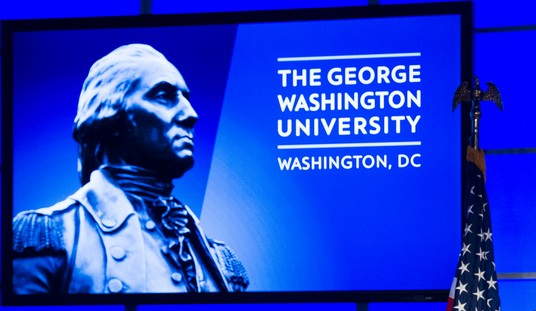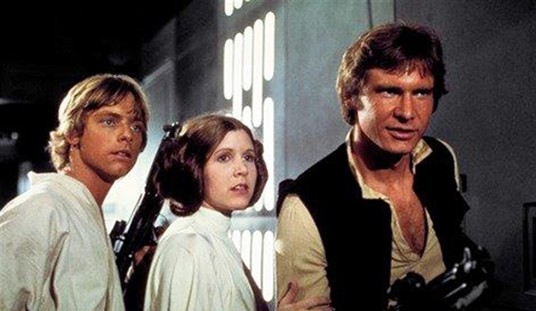Is there an apt comparison to be made between Julius and Ethel Rosenberg, who went to their deaths in Sing Sing prison’s electric chair in 1953 for “conspiracy to commit espionage,” and Private First Class Bradley Manning, who was convicted on July 30 of 17 of 22 charges of espionage and theft?
Most people would immediately say “yes.” Writing in the Los Angeles Times, the Rosenbergs’ youngest son, Robert Meeropol, says of Manning: “I feel a kinship for him.”
The Rosenbergs provided military and atomic information to the Soviet Union of Joseph Stalin, both during the years of World War II and in the days of the early Cold War; Manning violated his oath to the United States when he gave classified secrets to Julian Assange’s Wikileaks. Both Manning and the Rosenbergs endangered American national security out of a misguided belief that they were serving the higher interests of humanity. The Rosenbergs believed that the world working class, whose interests were protected by the Soviet Union, deserved any military secrets they desired. Manning believes that there should be no secrets, and hence any data he had access to rightfully should be told to one and all.
If we excused people who betray their country out of a delusional belief that they are doing so for a higher cause than patriotism to their own nation, then our nation would truly be in mortal danger from our enemies. Robert Meeropol doesn’t see it that way. The logic he shows in his op-ed is actually quite revealing. While the prosecutors claim that Manning was guilty of “espionage, theft and other unsavory terms,” Meeropol believes that “what Manning really did was reveal the truth of our government’s action to the American people and the world.”
He goes on to draw his analogy between the fate of his parents and that of Manning. After cknowledging that his father and co-defendant Morton Sobell “did provide valuable military information to the Soviet Union during the 1940s” — to my knowledge an acknowledgment he has never made before — Meeropol then argues incorrectly that his parents’ espionage network did not provide atomic information. Also, the experience of his parents’ trial, sentencing, and execution has led him to believe that “citizens must know what the government is doing in their name.”
Meeropol begrudges those who think “Manning is a traitor.” As he sees it, the convicted soldier only “released classified material that embarrassed the U.S. government” and might “put us at a disadvantage when dealing with other nations.” Nothing significant, evidently — just like what his father gave to the Soviets, though valuable, did not deserve a death sentence or even a conviction.
He no longer believes in his parents’ dream of “faith in the USSR,” but he understands their supposedly well-meaning motivation. But his own faith, he writes, is to “humanity as a whole.” And Mr. Meeropol has decided that Bradley Manning is only a whistleblower who, like Meeropol himself, says he feels “connected to everybody.” Reading Manning’s words, Meeropol adds: “Isn’t that how we all should be thinking?”
Well, no, it is not. The situation and threats we face do not permit us the luxury to give away secrets necessary to our national security.
Let us take a look at what Bradley Manning wrought upon us. As James Kirchick writes in the Daily News, Manning is nothing less than a traitor. Indeed, he argues that the Manning was lucky to avoid the death penalty, which Kirchick believes was well-deserved because he committed capital crimes.
First, Manning provided the names of individuals who opposed authoritarian regimes, and whose disclosure puts them at risk of attack and death in their own countries. For example, he disclosed the names of judges who were willing to take part in a trial in Lebanon of those responsible for the death of the late Prime Minister Rafik Hariri, who had been assassinated by Hezbollah and its Syrian patrons in 2005. A cable from the U.S. ambassador stated: “These persons are at risk of being threatened or assassinated for agreeing to act as tribunal judges.”
Did we need to know their names, Robert?
Another cable given to WikiLeaks by Manning named two brave human-rights activists who were giving information about the horrors of the Assad regime in Syria to the United States.
How does that serve “humanity as a whole”?
There are scores of similar items cited in Kirchick’s article. But even more important, Kirchick writes, “is the vast chilling effect that Manning’s treachery has had, and will continue to have, on American diplomacy.” Opponents of Iran’s move to obtaining a nuclear weapon, for example, will now find that the leaks greatly interfere with our diplomats gaining information and acting wisely, since those who previously might have come forth now will wonder whether Manning’s leaks have compromised them.
A whistleblower is one thing; the release of information that inhibits freedom of the U.S. and its representatives to act abroad in our nation’s interest is another thing — since our enemies, and not just our citizens, have access to what he gave away. U.S. actions in Iraq, which he and Meeropol oppose, are not excuses for releasing classified information because of a misbegotten view that everyone has a “right to know.” As Kirchick concludes: “Manning’s supporters reveal themselves to be inspired less by justice than by a vengeful, anti-state dogma directed mostly at one state: The United States.”
Robert Meeropol is a citizen of this country — not the world. His parents were citizens of the United States also, although in their minds they were subjects of Joseph Stalin and the U.S.S.R., to whom they thought they had a duty to serve. Manning felt, as a soldier who knew him testified in court, that he had “no allegiance” to the United States, and that our flag “meant nothing to him.”
Unfortunately, he took an oath to our country that he betrayed. He deserved to be found guilty, just as the jury rightfully convicted Julius and Ethel Rosenberg many decades ago.
Robert Meeropol’s belief that it is wrong to “elevate the interests of our country above those of all others” is nothing but foolish, dangerous, and wrong-headed. Citizens of this country owe their allegiance to this country, not to a mythical world government in which we all supposedly live, and all share democratic values. One cannot align instead with “humanity as a whole,” unless Mr. Meeropol wants to harm his own country at a time in which much of the rest of humanity are not exactly our bosom friends.
Bradley Manning betrayed and harmed his own country, just as Julius and Ethel Rosenberg did in the ’30s and ’40s. Both were rightfully convicted. How sad that Robert Meeropol still holds illusions that blind him to reality.








Join the conversation as a VIP Member